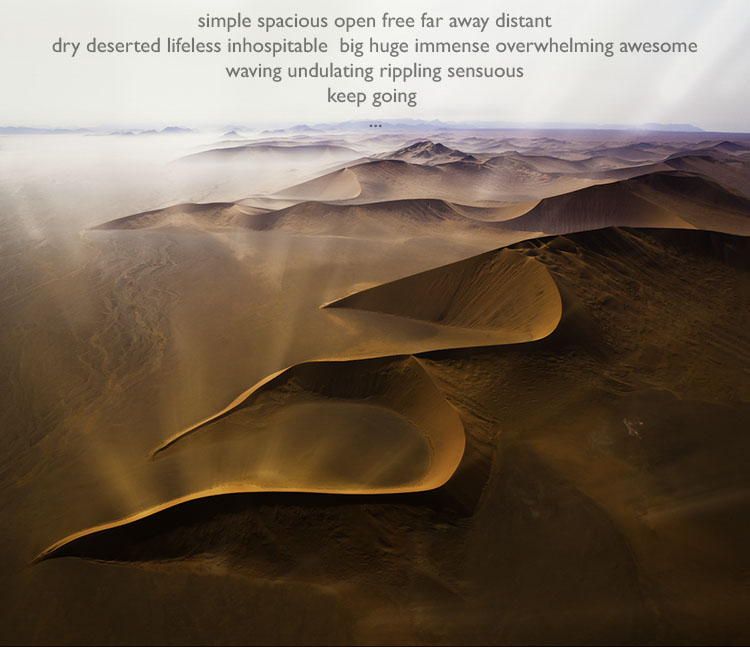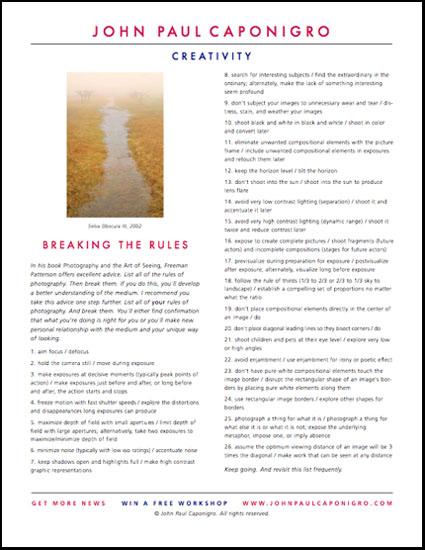
This article is part of a series …
Take Inventory With Nouns.
Discover Qualities With Adjectives And Adverbs.
Identify Actions With Verbs.
Develop the habit of making lists and you’ll dramatically sharpen your powers of observation and retention. (We’re 72% more likely to remember and act on what we write down.)
After you identify the things (nouns) and actions (verbs) in your environment, identify the qualities of those things (adjectives). (Notice that if this was worded as a question, we’ve moved from “What is it?” or “What is happening?” to “How does it feel?”)
Savor your subjects with all of your senses; sight, sound, touch, smell, taste. Note all of those qualities. The things that are not seen but nevertheless sensed may be the very things that separate your images from another, they may even be what they are about (not of).
Go beyond observing the world outside you to include the world inside you. Your associations – memories, emotions, ideas, connections – are often the very things that make your images unique. Invest more of yourself in your images and make them more your own. There’s a dramatic difference between an angle of view and a point of view. An angle of view can be duplicated; a point of view can be shared but never truly copied.
You may not be able to duplicate these responses for viewers of your still images but you can allude to them and having identified them will make your experience richer and your perspective deeper. The difference will be felt by viewers of your images – and your images will bring back more memories for you.
You may be able to use all the words you gather in your lists for another purpose – crafting words. If you are called to speak or write about your images you’ll have a lot of raw material to work with.
Find more ways to boost your creativity using words.
Learn more creative techniques in my workshops.



